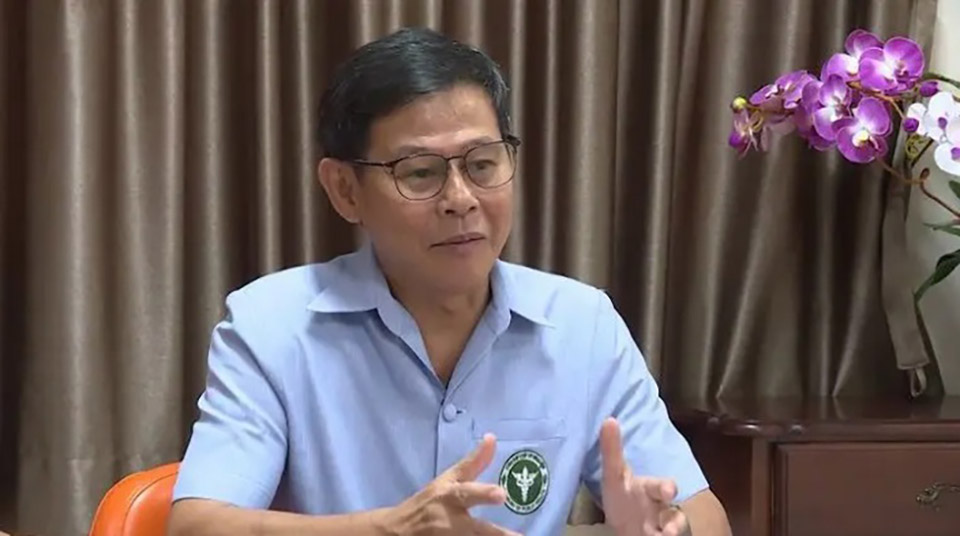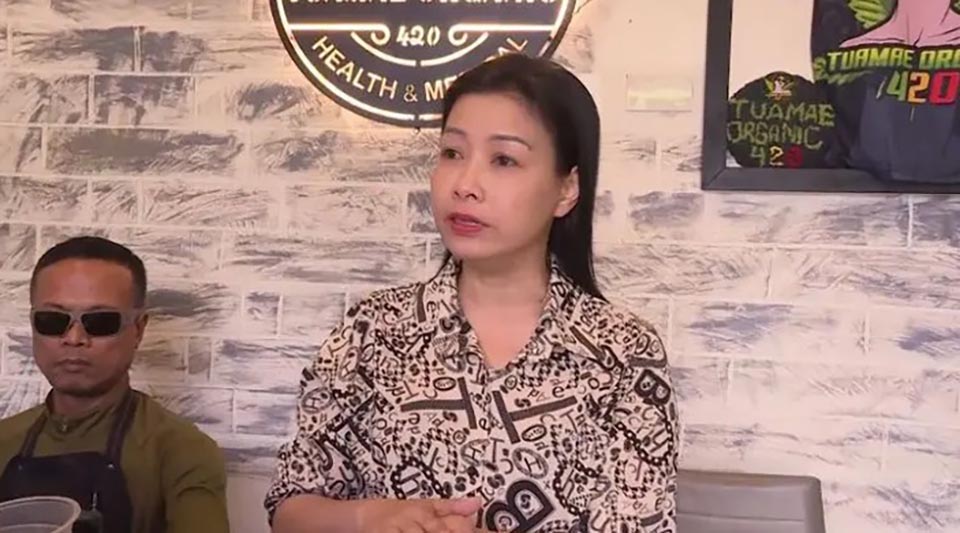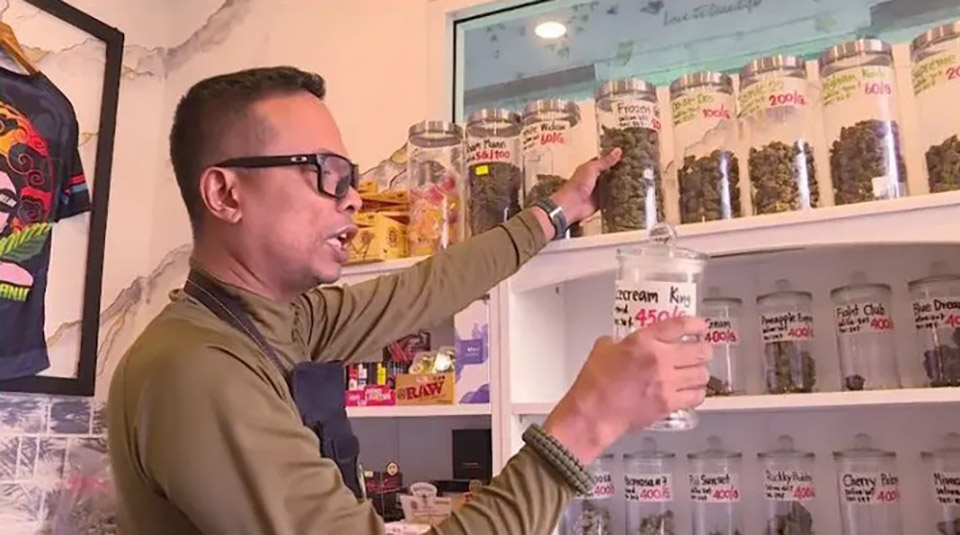
The future of cannabis in Thailand is uncertain following recent announcements by the government suggesting a potential reclassification of the plant as an illicit narcotic. This has sparked debate among various stakeholders, with some supporting the move and others expressing concerns.
Phuket, a popular tourist destination, has witnessed a surge in the number of cannabis dispensaries since its legalization in 2022. The Ministry of Public Health’s announcement removed cannabis from the Category 5 narcotics list and allowing licensees under Section 46 to legally study, export and sell cannabis.
The island currently boasts over 1,600 licensed dispensaries, primarily concentrated in tourist hotspots like Patong, Karon, Kamala, Chalong, and Phuket Old Town. In some areas, shops are next to each other, while in others they are just 20-30 meters apart, allowing customers to go from one shop to the next.
Each shop receives a 3-year license for just a 3,000 baht fee, which can be easily applied for online, leading to the rapid increase of cannabis shops in Phuket. However, the Phuket Provincial Public Health Office says there are still unlicensed underground cannabis shops operating.
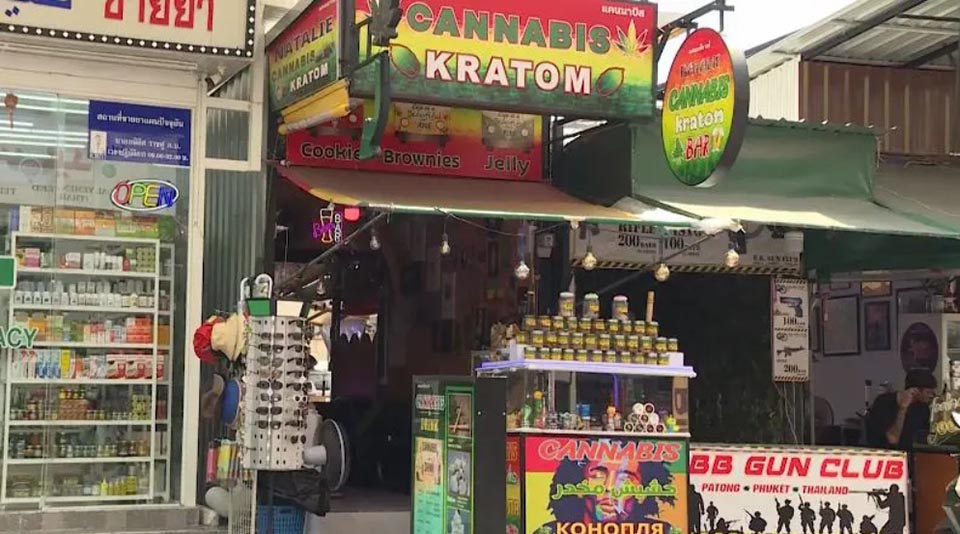
Moreover, licensed shops were also found to violate rules, especially the ban on smoking on premises and advertising, resulting in 26 shops having their licenses suspended for 30 days after raids by health officials and police.
There have been complaints about foreigners using Thai nominees to open cannabis businesses illegally, but when investigated, their documents appeared legitimate.
One cannabis shop owner, among the first legal licensees in Phuket, operates a family business catering mainly to foreign tourists in the city area. From late 2022 to last year, sales were very good with monthly revenue sometimes over 100,000 baht, so they expanded their businesses.
But this year, sales have plummeted, likely due to increased competition from more shops and foreign groups, especially Russians, setting up businesses to serve their compatriots visiting Phuket, severely impacting Thai-owned shops.
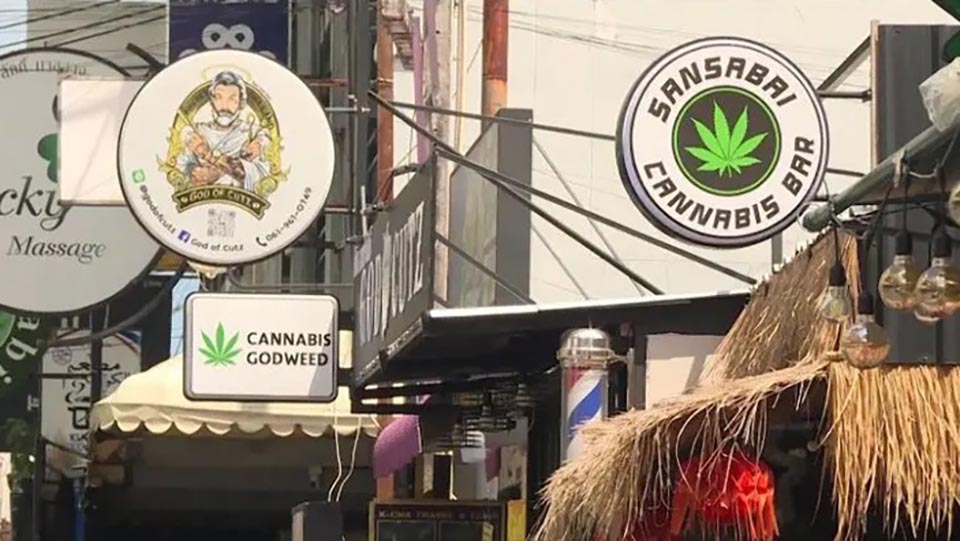
With news of the government’s plan to re-criminalize cannabis, the owner of this cannabis shop, Jirayu Pitphan is worried after his heavy investment. She suggests the government should urgently enact clear cannabis control laws, stipulating shop opening hours and stricter licensing requirements, rather than an outright ban which would do more harm than good.
Meanwhile, a Phuket resident agrees with re-criminalizing cannabis because most users are foreign tourists causing nuisance to non-smokers by violating public smoking bans and emitting odors. Some shops even illegally sell to youths, which he believes leads to other social problems.
Whether cannabis remains legal or not, it undeniably has medical benefits and can help many patients who need it. But misuse also widely impacts society negatively. Thus, the government must chart the right strategies and enact clear control laws. (TNA)
